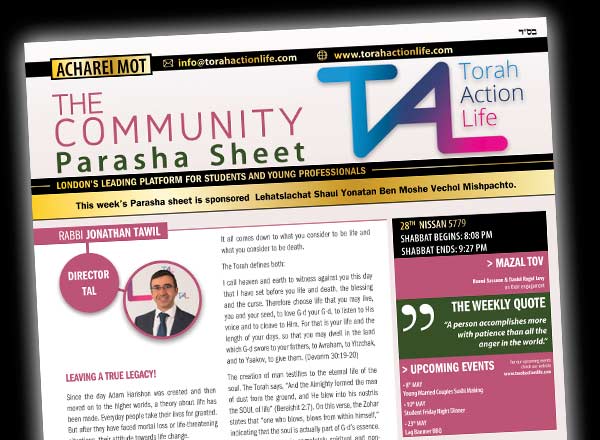Why Do We Honour?
On the first of Nissan, during the consecration of the Mishkan – the Tabernacle, Moshe Rabbenu summoned Aharon and his sons, who were the Kohanim in charge of the service in the Mishkan. He also called the elders of Israel,…
Hashem’s Wonders
Soon we shall all be sitting with our families around the Seder table, men women, grandparents, children, many generations sitting at one table in order to relate the story of our ancestors and how G-d redeemed them from Egypt. It…
Parasha Insights
“Command [Tzav] Aharon and his sons” (6:2). Rashi comments that the Hebrew word Tzav used by the Torah here to mean “command” is an expression indicating performing enthusiastically and swiftly, without hesitation. The Torah uses this encouraging expression because the…
A Leader’s Sins
“If a leader [“Nassi”] sins unintentionally and commits one of all G-d’s commandments, which may not be committed, incurring guilt.” (Perek 4, Pasuk 22) The Gemara (Horayot 10a) defines the leader referred to in this Pasuk, as the King. The…
G-d’s Gift!
As the curtain rises on Parshat Vayakhel, Moshe assembles the nation in order to convey G-d’s commandments concerning the construction of the Mishkan (the Sanctuary). Suddenly, however, he opens his remarks with the following directives concerning Shabbat: “Six days work…




